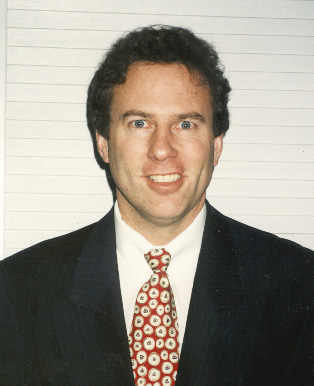Cable, Telco, and Satellite Pay-TV: Why Can't We All Just Get Along?
The smarter way to stay on top of the multichannel video marketplace. Sign up below.
You are now subscribed
Your newsletter sign-up was successful
Over the years, it has always been nearly impossible to interest anyone from the large competitive telephony or cable providers to speak at DBS conferences.
Indeed, a careful review of the affiliations stated by the typical attendee suggested that few, if any, telco and/or cable folks were in those rooms, even as observers. I always found this odd. After all, how’s that old adage go: Know your friends well, your enemies better?
Cable vs. DBS vs. Telco
Today, it remains extremely difficult, if not impossible, to get someone from Comcast or Time Warner Cable to give a keynote or even join a panel discussion at a so-called “satellite” conference. The same is true, typically, for a “telephony” conference: few, if any, cable or satellite executives attend. For their part, DBS officials won’t speak at so-called “cable” or “telco” conferences, either.
Why No Sling?
Using another example of this oddity, it is strange to watch the reluctance of big cable operators nationwide when it comes to EchoStar and its video place-shifting device called Sling. EchoStar has built this feature into new set-top boxes that also involve remarkable DVR and other time-shifting technology.
Yet, despite “this is the future” capability, the U.S. cable industry has generally ignored the best interests of its shareholders, as well as of its actual and would-be subscribers, by not doing a single significant place-shifting set-top box deal with EchoStar.
Admittedly, sister company Dish Network gained few points among cable guys by once labeling cable a literal and figurative “pig” in national ads. Also, there are technical compatibility issues involving millions of set-top boxes. Nonetheless, there comes a clear point in business where a great businessman gets past the emotion and reacts according to good business sense, and that time is surely near (or nearer?), at least for the nation’s larger cable MSOs. Sling is just that good.
Ending The Balkanization
Ultimately, the real question here is: Does this “balkanization” between cable, telco, and satellite pay TV providers really make sense, in the ever-more-converged (and converging) world of modern-day pay TV services and products? The answer is a clear “no,” and I challenge someone, anyone, to tell me otherwise.
One of the reasons these sectors’ own forms of “narrowband” and “walled gardens” don’t make sense is because of the actual and forthcoming alliances that these providers will inevitably and eventually enter into. Indeed, those alliances will proliferate, again, eventually and inevitably. Efficiencies of finance, economics, marketing, personnel, and most other business aspects will demand such partnerships.
The smarter way to stay on top of the multichannel video marketplace. Sign up below.
Which is not to say these players ever reach the point where they have to worry about anti-competitive complaints from the government, but rather, only, that at certain junctures to not seek these efficiencies (e.g., to all merge together to universally fight piracy) makes no sense at all.
More Alliances Coming
Another reason is that these pay-TV players are each becoming more and more similar. Thus, the financial, distribution and consumer networks deserve to see them compete, on stage, and in the greater marketplace. This has to happen so observers can readily make those comparisons, and the best can then rise to the top.
A few examples are emerging. For one, Comcast has become an ally alongside DirecTV and Dish in the wireless provider, Clearwire. And several small cable operators are now using EchoStar’s IPTV capabilities to deliver upgraded HD video capacities that they otherwise couldn’t have.
Another rather rare, but finally happening, example involves DirecTV and NCC Media. A recent press release by the two includes the subtitle, “Innovative venture between cable and satellite companies will greatly benefit spot TV advertisers.”
A Next Important Step?
So where does this all end up? Well, suffice it to say telecom conference organizers should be trying hard to bring together super panels, say, for example, at CES or at NAB, involving the top players from Comcast (the largest MSO), DirecTV (the largest DBS provider), and from Verizon (the most dominant telco), on the same stage, at the same time.
After all, isn’t it time to ask the question once asked by the infamous Rodney King: Why can’t we all just get along? Answered shortly: we can, we should, and we will. That said, watch for these sessions to occur, as they are inevitable. We’ll all learn a lot, and each industry sector, its shareholders, and subscribers, will all be the better for it.
Jimmy Schaeffler is chairman and CSO of Carmel-by-the-Sea-based The Carmel Group
Jimmy Schaeffler is chairman and CSO of The Carmel Group, a nearly three-decades-old west coast-based telecom and entertainment consultancy founded in 1995.

